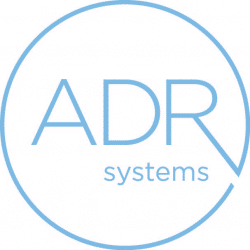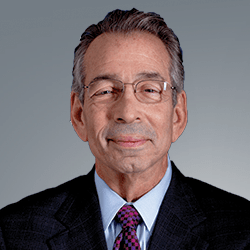We sat down with Hon. Clifford L. Meacham, (Ret.) and Hon. Stuart A. Nudelman, (Ret.), senior mediators and arbitrators at ADR Systems, to discuss some of the finer points of arbitration. Together, Judges Meacham and Nudelman have more than 60 years of experience overseeing trials and arbitrations. They have seen what works and what does not work in arbitration. This article is the first in a series on their observations.
“Starting out Right”
There are many moving parts to an arbitration. Can you tell us about critical decisions that are made before the arbitration starts?
Judge Nudelman: Often litigation has been initiated between parties before an arbitration. There are times, however, when arbitration takes place before a lawsuit has been filed. In either case, the parties have some very important decisions to make. In commercial cases, counsel for both sides decide on a one- or three-person (tri-panel) arbitration panel. Whether there is a single arbitrator or three arbitrators – all arbitrators are neutral decision-makers. Depending on the size and nature of the case, counsel must strategize about the need for one or three arbitrators. In addition, the scope of the arbitration must be considered.
Judge Meacham: The next critical decision is selecting the right arbitrator. The ability to select the person who will hear your case is a clear benefit of arbitration.
Judge Nudelman: Arbitration is really a private court system – parties select their own judge, make their own rules and select their own timetable. You effectively give up billing time and the right of appeal when you go to arbitration, but in return you save time, money and have more control over the process, and clients like that.
Judge Meacham: Decisions about the arbitration process are made between counsel. Attorneys should take advantage of the inherent flexibility of the arbitration process. They should discuss and attempt to agree on key procedural aspects of the hearing such as the scope of discovery, number of witnesses, scheduling and timing of the hearing, etc. Most arbitrators appreciate a thoughtful, tailored arbitration agreement that spells out all these things and stipulates to key pieces of evidence. This saves everyone time, and makes for an arbitration that is tailored to the unique aspects of the case and the parties involved. Attorneys who approach the pre-arbitration phase professionally will do well.
What else should counsel consider?
Judge Nudelman: There are a litany of things parties must consider before arbitration: what rules will be used, what provider will administer the arbitration, the powers the arbitrator will have, the schedule for the arbitration, the extent of motion practice, the parameters and timeframe for discovery, the date or dates for the hearing, what type of arbitration process will be used and whether the parties want a reasoned decision.
Regarding arbitration processes, there are many to choose from such as high-low, binding or non-binding, baseball, night baseball and others. Some of these things may be outlined in the arbitration agreement, but not always. Even if the arbitration clause calls for a certain set of rules or administrator, parties can agree or stipulate to others. Options abound when parties can agree; however, it’s not always easy for counsel to agree. If they cannot agree, then they can ‘decide’ to have the arbitrator decide those issues.
Judge Meacham: Arbitration should be cooperative. All commercial arbitrations at ADR Systems will include at least one pre-arbitration conference call in which the participants, counsel for both sides, the arbitrator and case manager discuss how the arbitration will proceed. The ADR Systems’ case manager serves as the coordinator of all case information – the gatekeeper – everything flows through them. Counsel can contact the case managers whenever a need arises and the case managers contact the arbitrator. Ex parte communication is not allowed.
In our calls, I like to determine the key issues to be decided and identify the key documents that will be produced. There is no reason to drag every issue and every document into the arbitration. It is much more efficient this way. It is usual to enter a final order which establishes the specifics of the evidentiary universe for the arbitration.
What about settlement before arbitration?
Judge Nudelman: We cannot forget that counsel must communicate effectively as soon as possible, as Judge Meacham alluded to in his comment about ‘professionalism.’ Counsel can try to settle the case themselves or at least eliminate some issues. Sometimes, parties will ask me to mediate before the arbitration. Or, they may get another mediator to see if that will help to settle the case.
Judge Meacham: Often in construction contracts, there is a med-arb clause requiring the parties to mediate before going to arbitration. Personally, I will not do the arbitration if a mediation with me has failed. Mediation can happen before the arbitration or even during the arbitration. This can get a little complicated, but it’s not impossible to navigate.
Judge Nudelman: I agree with you. I welcome the chance to help parties resolve their dispute, but I’m careful if the parties want me to mediate or help them to settle the case prior to arbitration. I never speak to one side without having the other side present. Mediation and arbitration are two different processes – ex partecommunication is available in mediation, but not in arbitration.
Whether parties try to settle their case before arbitration or go straight into planning for an arbitration hearing, counsel will avoid missteps by meticulous preparation.
Let’s discuss how counsel can avoid potential pitfalls in arbitration preparation next time.





